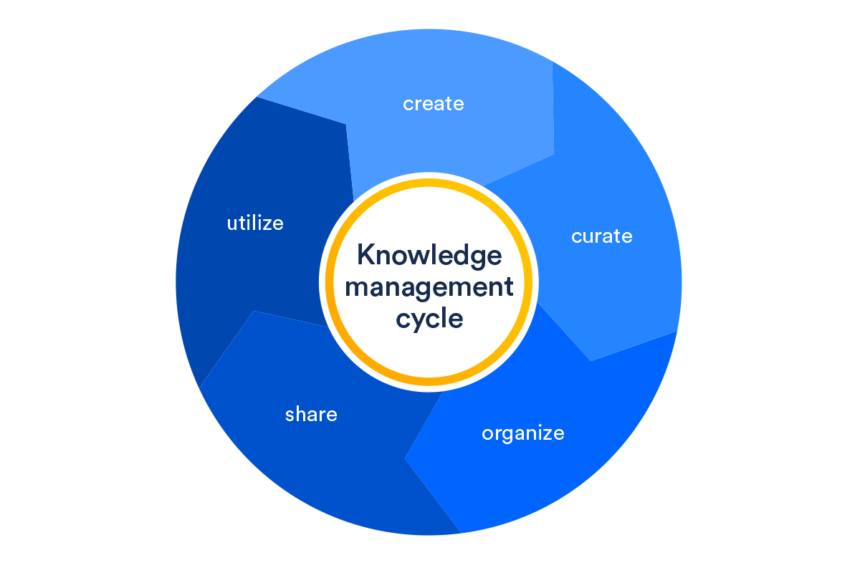In today’s fast-paced business environment, two concepts consistently rise to the top as critical drivers of success: employee engagement and knowledge management. While often discussed in separate silos, they are deeply intertwined. A robust Knowledge Management (KM) strategy doesn’t just create a more efficient organization; it directly fuels a more committed, motivated, and productive workforce. To understand this powerful connection, we must first answer a fundamental question: what is knowledge management
What is Knowledge Management?
At its core, what is knowledge management if not the systematic process of capturing, distributing, and effectively using organizational knowledge? It’s the discipline of ensuring that the right person has the right information at the right time.
This involves managing two key types of knowledge:
Explicit Knowledge: The easily codifiable information found in documents, manuals, databases, and reports.
Tacit Knowledge: The hard-to-articulate expertise, insights, and “know-how” that resides in employees’ minds, gained through experience.
A successful KM system uses technology (like intranets and collaboration platforms), processes (like lessons-learned databases), and a supportive culture to break down information silos and make knowledge a shared asset. But how does this technical-sounding practice translate into something as human-centric as employee engagement?
The Engagement-Knowledge Loop: A Virtuous Cycle
The link between KM and engagement is a powerful, self-reinforcing cycle. Effective knowledge management directly addresses several fundamental human needs in the workplace, which in turn boosts engagement. Engaged employees, feeling valued and empowered, then proactively contribute to and improve the knowledge base. Let’s break down this loop.
How Knowledge Management Fuels Employee Engagement
1. It Empowers and Enables Autonomy
Nothing is more frustrating for a motivated employee than hitting a knowledge wall. When information is locked away in silos, inaccessible, or simply doesn’t exist, employees feel powerless. A strong KM system empowers them. It gives them the tools and information they need to solve problems independently, make informed decisions, and take ownership of their work. This sense of autonomy is a primary driver of intrinsic motivation and engagement.
2. It Fosters a Culture of Collaboration and Trust
When an organization invests in a platform that encourages sharing, it sends a powerful message: “Your experience matters. Your insights are valuable.” This builds a culture of trust and mutual respect. Employees are not pitted against each other as knowledge hoarders but are rewarded for being knowledge sharers. This collaborative environment makes people feel like they are part of a team working towards a common goal, significantly enhancing their emotional connection to the workplace.
3. It Accelerates Onboarding and Competence
A new employee’s first few months are critical for long-term engagement. A disorganized, sink-or-swim onboarding process leads to anxiety and disconnection. A KM system that provides clear processes, access to past projects, and directories of subject-matter experts can cut onboarding time in half. When new hires can quickly get up to speed and feel competent, their confidence grows, and they form a positive, productive attachment to the company much faster.
4. It Reduces Frustration and Duplication of Work
Imagine spending days working on a project, only to find a colleague in another department had already solved the same problem years ago. This kind of redundant effort is a massive source of frustration and a primary reason for employee burnout. KM prevents this “reinventing the wheel” syndrome. By making existing solutions and past work easily discoverable, it removes a major daily irritant, allowing employees to focus on innovative, value-added work.
5. It Demonstrates Organizational Investment
Implementing a KM system shows that the company is invested in its employees’ success and long-term growth. It demonstrates a commitment to preserving institutional memory and building a smarter organization. When employees see that their company values knowledge and learning, they feel more valued themselves and are more likely to invest their own energy and loyalty in return.
How Employee Engagement Strengthens Knowledge Management
This relationship is not a one-way street. Highly engaged employees are the lifeblood of a thriving knowledge management ecosystem.
They Become Active Contributors: An engaged employee doesn’t just consume knowledge; they are motivated to give back. They will proactively document their successes and failures, share best practices, and answer questions on collaboration platforms.
They Improve Knowledge Quality: Because they care about the company’s success, engaged employees are more likely to ensure the knowledge they share is accurate, relevant, and useful, enhancing the overall quality of the knowledge base.
They Champion the Culture: Engaged employees naturally encourage their peers to participate. They model collaborative behavior and help foster the open, trusting culture that is essential for KM to succeed.
Implementing a KM Strategy that Boosts Engagement
Simply installing a new software tool is not enough. To harness the power of this link, organizations must:
Lead with Culture, Not Technology: Foster an environment where sharing is recognized and rewarded, and where asking for help is seen as a strength.
Make it Easy and Intuitive: The KM platform must be as easy to use as popular consumer apps. Frictionless use is key to adoption.
Integrate into Workflows: Knowledge sharing should be a natural part of the work process, not an extra, tedious task.
Conclusion
The question is not whether to invest in knowledge management, but how quickly it can be done. Understanding what is knowledge management reveals it is far more than an IT initiative; it is a powerful engagement engine. By empowering employees, fostering collaboration, and removing daily frustrations, a strong KM strategy directly addresses the core drivers of a committed workforce. In the modern economy, your organization’s knowledge is only as strong as the employees who steward it, and their engagement is the key that unlocks its true value.






